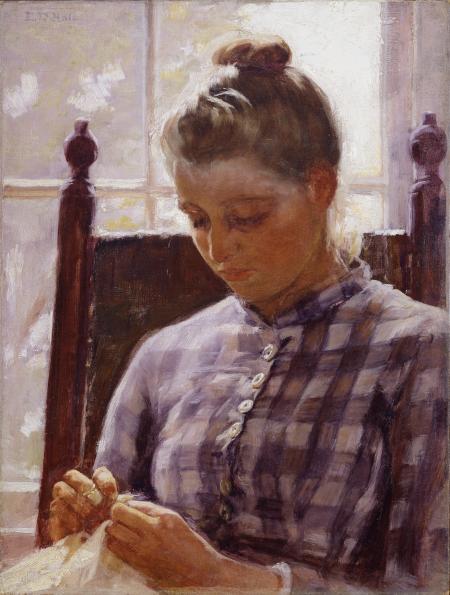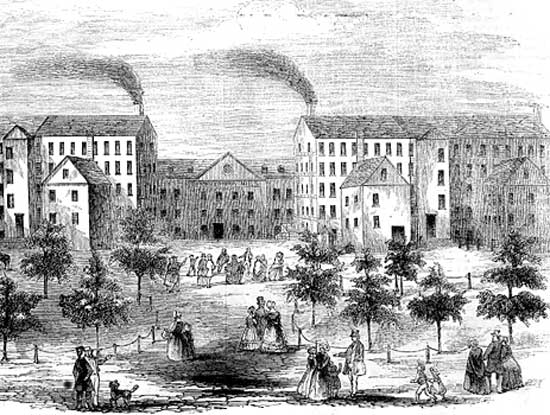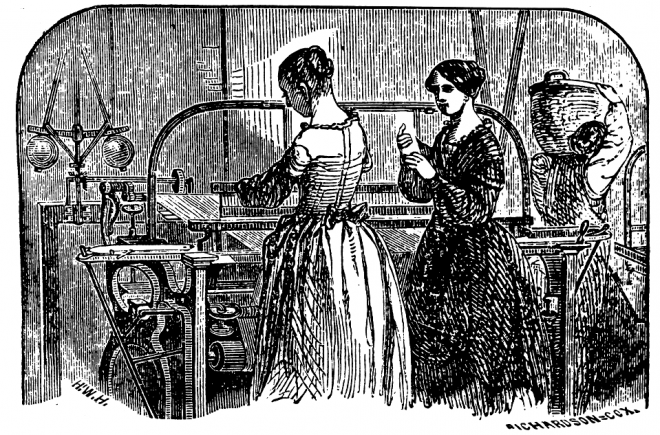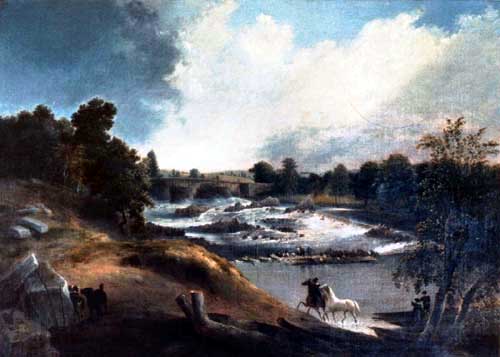On 19th October, at midday, when some of us at Persephone will be marching, a blue plaque will be unveiled by the Bradford Civic Society honouring Malachi Whitaker, one of their own. The person most recently honoured by the Civic Society in July was Bradford’s ‘celebrated chemist’, Felix M. Rimmington, who, according to his plaque unveiled in July, ‘investigated many instances of poisoning – including the infamous “Humbug Billy” sweet poisoning case of 1858.’ A seed for a short story if ever there was one.
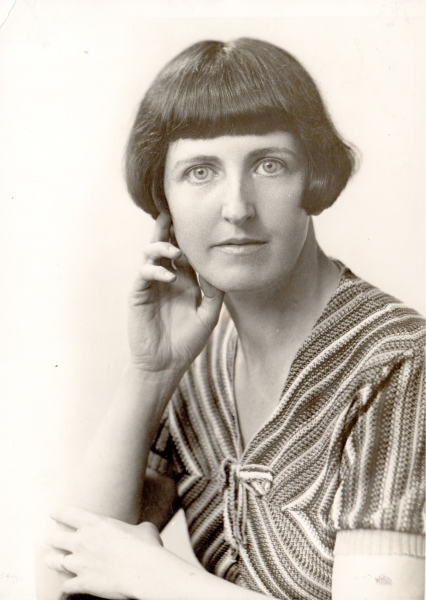
Born in Bradford in 1895, Malachi Whitaker’s first short story was published in 1927, the first collection in 1929, followed by three more collections in 1930, 1932 and 1934. She was championed by John Middleton Murry and Edward Garnett and published by Jonathan Cape. Noting her focus on ‘the common daily stuff or small beer of existence’, Arnold Bennett praised her powers of observation and her originality. V.S. Pritchett thought her ‘watchful, unwasteful and a noteworthy talent’. Vita Sackville-West compared her to Katherine Mansfield. The TLS reviewer of her 1932 collection (Five for Silver) was somewhat more circumspect, praising her ‘honed style’, but added that this ‘intensified into an insistence on grotesque details, on ugly occupations, on repulsive physical characteristics, on the mean behaviour of young men to girls, and the hostility that dwells in homes.’ To which, had one had the opportunity to do so, one might have replied , ‘and your point is?’ Seven years later, another, or perhaps the same, TLS reviewer wrote a damning review of Whitaker’s memoir And So Did I. He considers her thoughts and feelings to be ‘dull’, her comments’ damp’, the result, ‘from a conventional literary point of view … worthless.’ By way of example he quotes a passage in which Whitaker expresses her envy of Saul for the revelation that came to him on the road to Damascus, ‘lucky, lucky Saul, to have all the responsibility taken from him … I can only sigh and pass on, because the Hound of Heaven and me seem to keep about the same distance apart, both lolloping along with our tongues out, downhill, and stopping at the same time for meals and so forth. I have never felt even his warm breath at my shoulder.’ Such perfectly formed sentences, not a wasted word, exquisitely paced (her careful commas remind me of Dorothy Whipple), vivid images and feather-light humour prove that the reviewer must have had cloth ears, and stir our appetite for more, and more of her writing.
V.S. Pritchett’s words were well chosen: watchful and unwasteful. Reading The Journey Home we have the impression of being beside someone always on the look-out. Her ‘method’ is partially revealed in the title story. In a crowded train a woman gives up her seat to her husband, then sits on long, bony knees: ‘They were very quiet, never spoke at all, and looked dull and prim. One wondered why they had been to Summersea, why they had married, and so back to why they had been born.’ The story-teller’s imagination has been fired. And what then? What next?
No journey in Whitaker’s company could be dull: be it a couple on a train, a navvy on a building site, an old man walking with a small child, a lad carrying a lavatory, a young woman on the bus with her sleeping baby, a man waiting with his daughter outside a hospital, a girl behind a fish counter, a man and woman on deck-chairs on an unfenced pier: she reminds us that each has a past, and draws us into her speculations as to what awaits them.
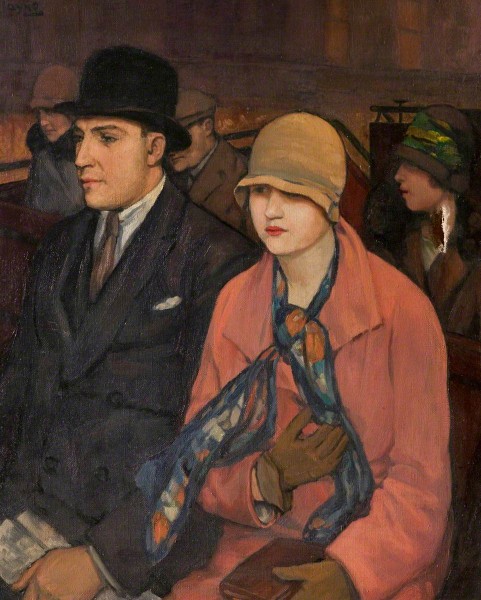
Over half of the stories open with unnamed individuals: ‘the girl’, ‘a fat man’, ‘a little thin man’, ‘a mother’, ‘a boy of fourteen’, ‘a man of about sixty’. Having, as it were, pointed them out, she paints a rapid pen portrait so that we might picture them more clearly. A young husband has ‘wide, fanatical brown eyes’, the eyes of a middle-aged woman are ‘a beautiful mixture of hazel and violet, not dimmed in any way by her years’, the colour of an old man’s eyes ‘almost washed away, but it had been palest blue even in his youth’, an untrustworthy lodger has ‘grey eyes, a little thick in the lids’. Facial details are limited but precise, occasionally bordering on the grotesque. One man has ‘a yellow moustache almost like a shelf above his mouth, with two brown, drooping ends’; another has one ‘like six or seven pieces of old string hanging over his upper lip’; a third ‘owing to some malformation … could never quite shut his right eye, the under lid of which, bright red and shining, seemed to be pinned down on to his cheek.’ We do not for a moment doubt that Whitaker has seen them. She asks us to pause too, and look. Occasionally she lingers over a calmer, gentler scene, holding the image: ‘A woman in a white apron and blue mob-cap came out of the door carrying a creaking basket filled with wet, folded white sheets and towels.’ She might have stepped from a Dutch painting. To know more we must look to our own imaginations.
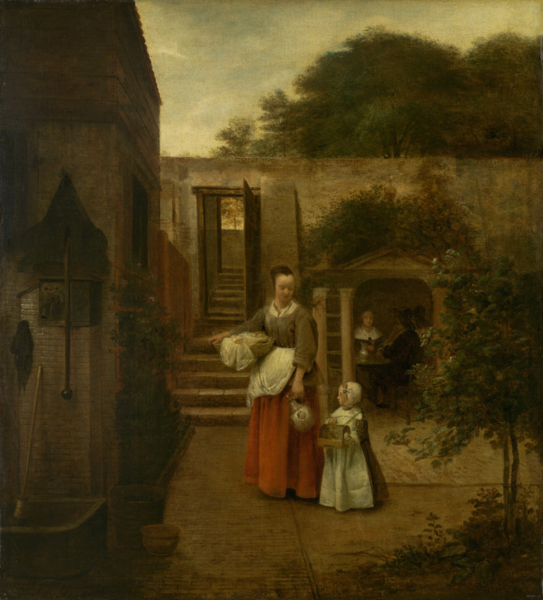
Philip Hensher, who wrote the illuminating introduction to The Journey Home, (and incidentally converted me to Malachi Whitaker at a Persephone lunch last year), discusses in the introduction to his own anthology, The Penguin Book of the British Short Story, the length of a short story and concludes that while there are no formal literary limits, between 4000 and 15 000 words might be considered a norm. Quite some leeway. There are twenty-one stories in this collection. These are very short stories, several only 1500 words, most 3000 or fewer. Vita Sackville-West applauded Whitaker’s ‘determination to make each word do the duty required of it.’ Is it possible that she set herself a word limit, making creative use of the discipline? Unexpected collocations make words do ‘double-duty’, so that the effect is greater than the sum of their parts: ‘rubber scented dimness’, ‘the sound of a quick-driven typewriter’, ‘an ecstasy of misery’, ‘a wide, propitiatory smile’, hair ‘as cold as a dead bird’s feathers’.
Sentences are built with the utmost economy, with no conjunction unconsidered, nor a comma wasted. A ‘raddled blonde of about forty, with stout flat feet … sold lavender, also peppermint cordial, which she made herself with essence and questionable water from the well behind the cottage’: why is ‘also’ so much more powerful than ‘and’, ‘stout’ more expressive than wide, or fat? And could anything be more off-putting than ‘questionable water’? The same woman is described coming ‘down the stairway, first her big, patched boots, then her dirty dress, then her large, coarse face plastered with make-up.’ Whitaker builds up atmosphere and character by focusing tightly on material detail: ‘The grandfather clock, which stood in a corner with its head and foot sawn off – the room was very low – suddenly gave a loud whirr and struck three times. It was ten o’clock.’ The word poverty would be redundant. A brother returns home after a long absence and asks his sister to wash his clothes: ‘what a lot of clothes he had, and how dirty they were, she thought. They had all sorts of names and initials on, not his own.’ No more needs to be said about his years away. An unmarried mother has considered buying a ring, ‘But it was only in shamed seconds that she thought of this’: how easily we deduce that Freda is clever, stalwart and resourceful, a modern woman coping in adverse circumstances.
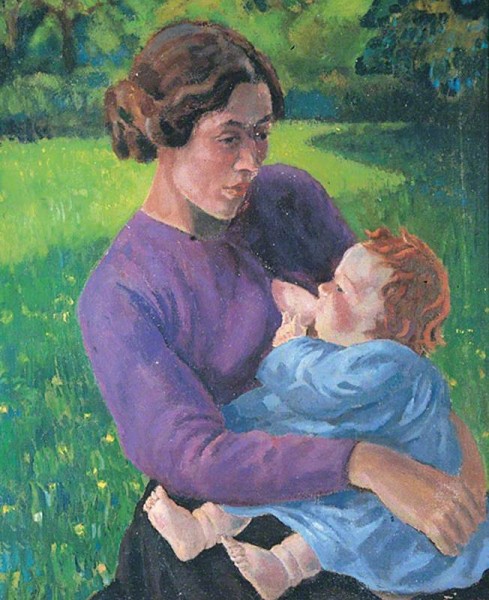
Malachi Whitaker’s contemporaries dubbed her ‘the Bradford Chekhov’, a moniker intended to praise but which strikes me as faintly absurd: any moderately large town, with a local writing group, might boast a ‘Chekhov’, along with a museum, an evening paper, and an art gallery (and in some cases a serial killer). Malachi Whitaker deserves both more, and less than that. She is no Chekhov: there is only one and it’s unfair to measure her against the greatest. But she does not deserve to be pinned to Bradford, or need special pleading as a Yorkshire writer. Her voice, her eye, and her style are unique. She writes about men as well as she does about women, and about children as vividly and with the same understanding as about their parents and grandparents. These stories are sometimes edgy, uncomfortable, occasionally shocking, never cosy, but every one is worth reading, and re-reading.

